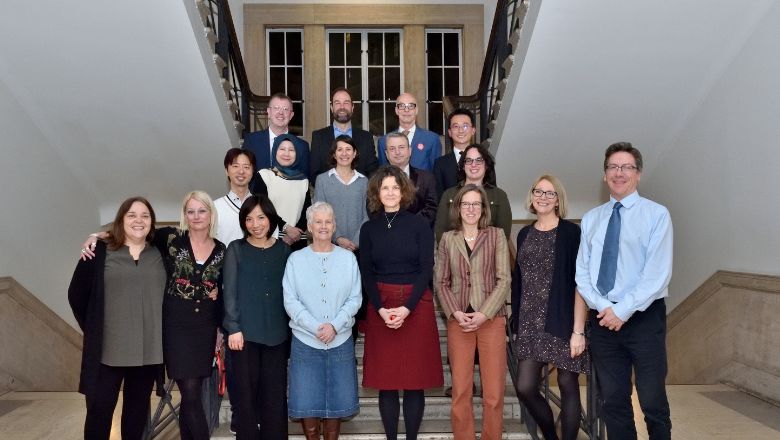
Dr Maria Eugenia Sanz
Reader in Physical Chemistry
- Associate Head of Department
- Physical Chemistry 1 Module Lead
Research interests
- Chemistry
Contact details
Biography
Dr Maria Eugenia Sanz is a Reader in Physical Chemistry in the Department of Chemistry, King’s College London.
Maria obtained her PhD from University of Valladolid working on weakly-bound complexes under the supervision of Prof. Juan Carlos López and Prof. José Luis Alonso, and went on to join Harvard University and the Harvard-Smithsonian Center for Astrophysics as a postdoctoral fellow and visiting researcher to investigate molecules of astrophysical interest under the supervision of Prof. Patrick Thaddeus. She returned to Spain with a Ramon y Cajal Fellowship, and was later appointed Profesor Titular. From there she moved to King’s College London, where she started her own research group.
Research Interests
- Conformational and Structural Determination
- Non-covalent Interactions
- Microsolvation
- Molecular recognition
- Atmospheric processes
Teaching
- Physical Chemistry 1 and 3
- UG Research Methods Literature Review
- MSci Research Project & Dissertation
- MRes Research Project in Interdisciplinary Chemistry
Research profile
For more information on Dr Sanz's research please see her Research Portal page
The Sanz Group
Research Associates:
- Charlotte Cummings
Postgraduate Researchers:
- Valerie Tsoi
- Satnam Dole
Structure, reactivity and function are intimately linked in chemical and biological systems. The Sanz group's research aims to obtain a better understanding of conformational preferences, the forces that determine them, and how/whether they change upon interactions with other molecules. Ultimately, this knowledge will allow us to have control over molecular structure.
We are particularly interested in:
- Microsolvation, where we examine solute-water interactions with an increasing number of water molecules, providing insight on the first steps of solvation at the molecular level.
- Molecular recognition, where we aim to determine the concerted effect of several non-covalent interactions that can result in selective binding between specific conformations.
- Atmospheric aerosol, and specifically the initial stages of atmospheric nucleation, where we investigate the structures and interactions of critical clusters that form in the gas phase.
We use broadband rotational spectroscopy, which provides structural information with an unprecedented level of detail, supported by quantum-chemistry calculations.
Research

Centre for Non-Equilibrium Science (CNES)
CNES acts as an international hub for cross-disciplinary research in non-equilibrium science.
News
Meet the winners of the 2025 King's Supervisory Excellence Awards and Doctoral Support Awards.
The King's Doctoral College is pleased to announce the winners of the Supervisory Excellence and Doctoral Support Awards 2025.

Research

Centre for Non-Equilibrium Science (CNES)
CNES acts as an international hub for cross-disciplinary research in non-equilibrium science.
News
Meet the winners of the 2025 King's Supervisory Excellence Awards and Doctoral Support Awards.
The King's Doctoral College is pleased to announce the winners of the Supervisory Excellence and Doctoral Support Awards 2025.

